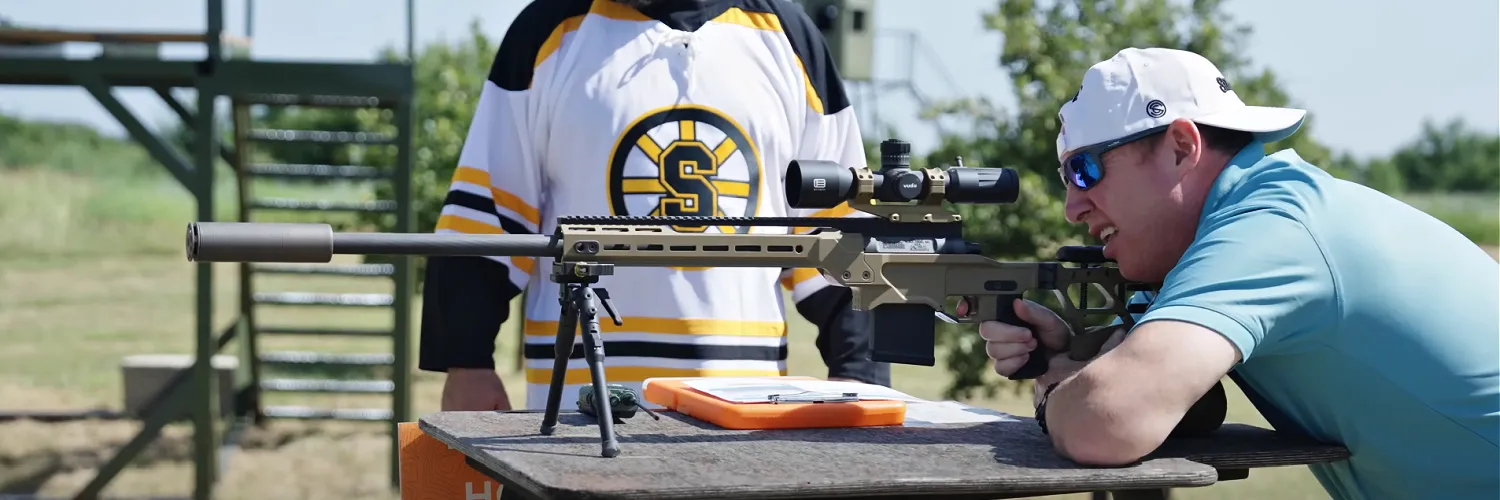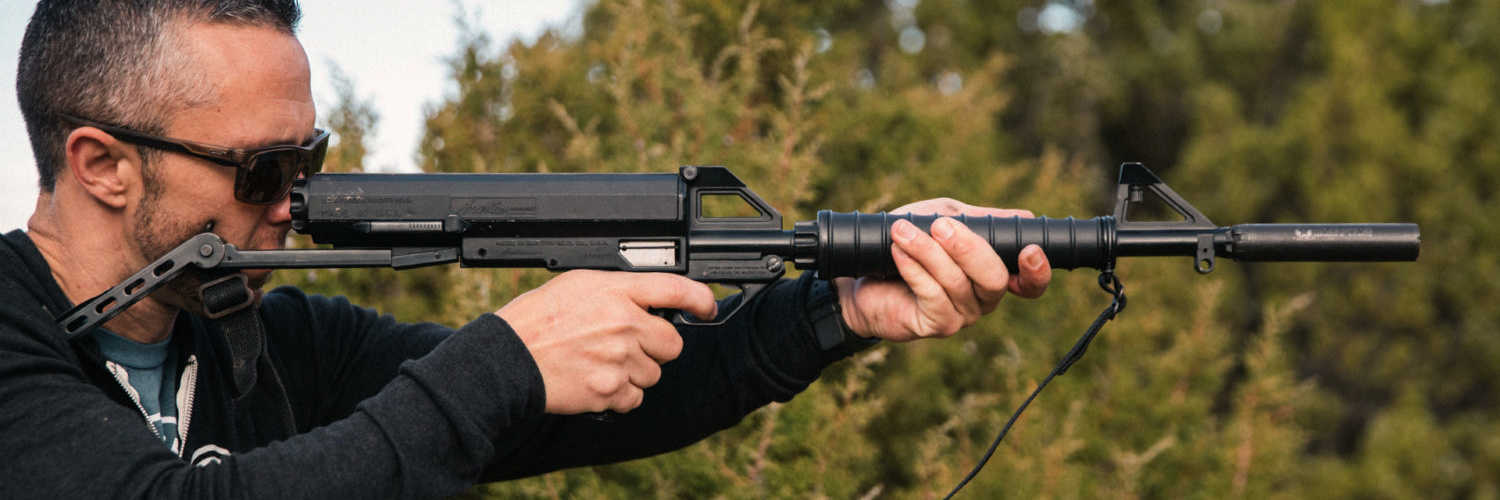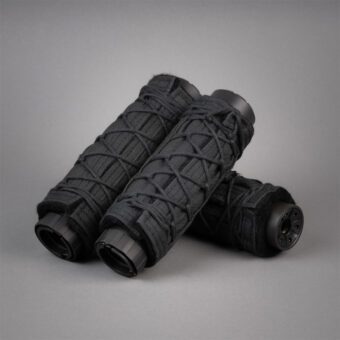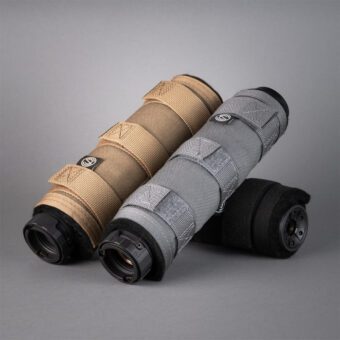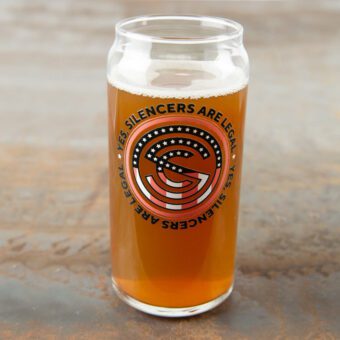The Power of Titanium in Silencers
David Higginbotham
In the world of suppressors, titanium is a highly regarded construction material. It has some unique properties that enhance suppressor performance. Let’s take a look at what titanium is, how it compares to other metals in suppressor construction, and what benefits a titanium silencer can offer.
What is Titanium?
Titanium is the ninth most common element on earth, and it holds immense potential. Yet, its transformation from raw ore to its application in various industries is no simple task. The rarity of everyday titanium items may stem from the complexity of refining it.
The process of titanium extraction is intricate, involving several chemical reactions. First, titanium dioxide is exposed to chlorine to form titanium tetrachloride. Next, magnesium is used to remove the chlorine, leaving behind a titanium “sponge.” This sponge is then crushed and smelted in a vacuum, resulting in titanium ingots that can be alloyed with other metals. Although this process is expensive compared to working with materials like iron or aluminum, the exceptional properties of the end product make it a valuable material.
Different Grades of Titanium
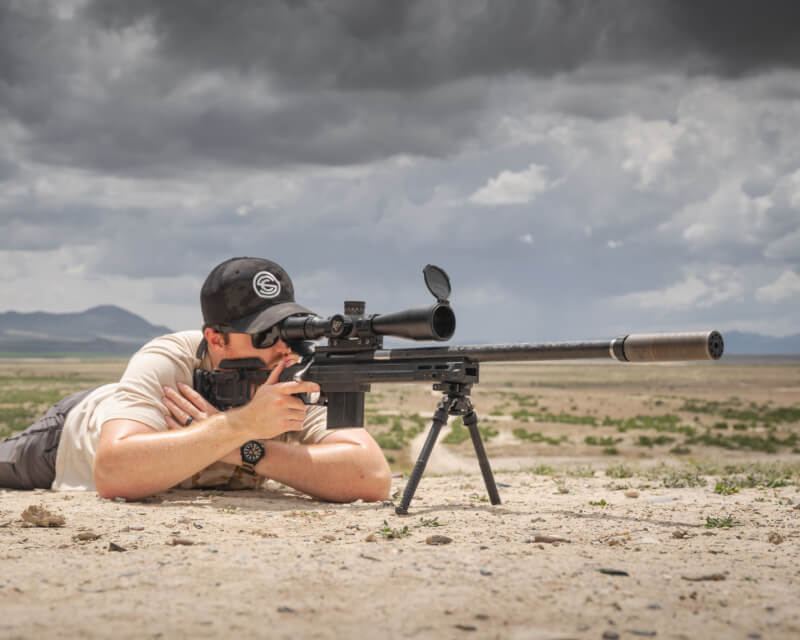
One of titanium’s remarkable characteristics is its versatility in various forms, known as grades. Grade 9 titanium, which includes 3% aluminum and 2.5% vanadium, allows for cold working. Grade 5 titanium, containing higher percentages of 6% aluminum and 4% vanadium, offers twice the strength, but it’s very hard to work.
Why Titanium Over Other Metals?
Now, you might wonder, when does the choice of material, specifically titanium, make a substantial difference for suppressors? Well, consider weight and strength. Titanium shines when you need a lightweight yet sturdy suppressor for centerfire rifles. Its corrosion resistance further enhances its suitability for the task.
When it comes to strength and weight, titanium offers an ideal balance. There are certainly stronger and lighter materials available, but titanium’s unique combination sets it apart.
It weighs less.
Anyone who has to carry a rifle for any distance — especially western hunters who may walk miles at higher altitudes — will appreciate the lighter weight of a titanium suppressor. While weight may not make much of a difference at the range, it does in the field.
The SilencerCo Scythe-Ti is a great example. This .30 caliber silencer is extremely lightweight and short, while still boasting impressive sound suppression

Titanium is strong.
Strength is a critical factor in suppressor design. While aluminum and steel combinations perform well for rimfire rounds, titanium stands out due to its exceptional strength and corrosion resistance.
The strength of a suppressor must contain the pressures produced by the round. While aluminum and steel combinations work well for rimfire rounds, titanium offers greater strength and corrosion resistance.
The SilencerCo Sparrow, constructed with aluminum and stainless steel, has demonstrated its durability, capable of handling various rounds with ease. After 15 years, the Sparrow (aluminum and stainless steel) has proven itself capable. It weighs in at less than half a pound but can withstand full-auto 22 LR. In semi-auto, the Sparrow is rated for 17 WSM, 17 HMR, 22WMR, 22 HORNET and even 5.7X28MM.
The Limited Edition Sparrow-Ti is rated for the same calibers, but it weighs less than four ounces-half of what the original sparrow weighs. While this may seem to be related to the weight issue, it has more to do with the replacement of the original Sparrow’s steel components — making this an ideal rimfire suppressor.
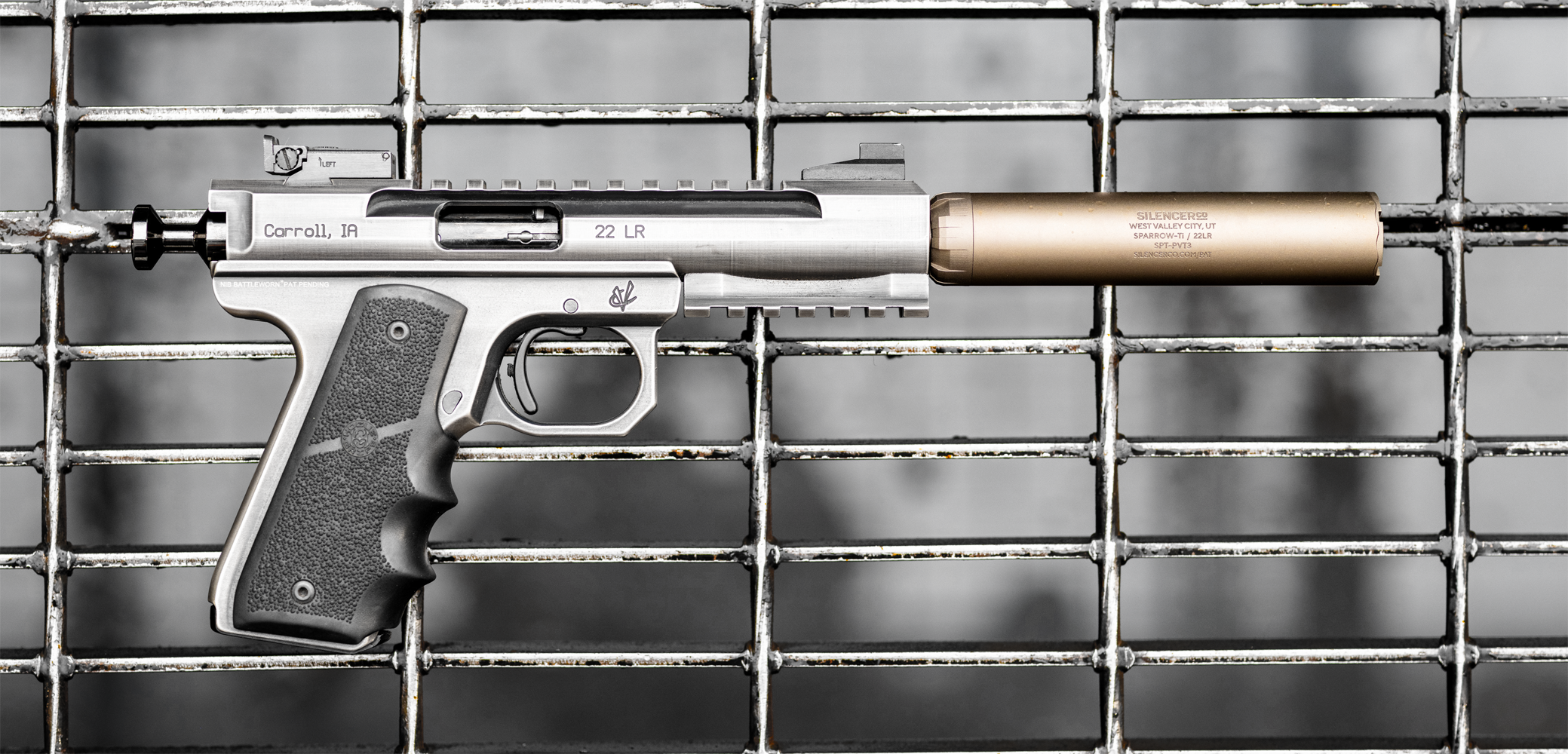
When comparing strength to weight, titanium shines. There are stronger metals. There are lighter ones, too. But Titanium may offer the perfect balance of the two.
Now, let’s briefly explore other materials commonly used in suppressors
Other Metals Used in Suppressors
Stainless steel, known for its corrosion resistance and ease of maintenance, is a superb material for silencers. It is easy to work, thus prolonging the life of manufacturing tools. It is resistant to heat, and most importantly, it requires a bare minimum of upkeep from end users. As a bonus, it is modestly priced.
Why not make everything out of stainless steel? Weight is often a consideration. And there are materials that can handle more heat and stress—so the choice to use stainless, or not, often comes down to mission specific needs.
Aluminum, on the other hand, is the go-to for lightweight suppressors that won’t face immense pressures, particularly for rimfire applications. Consider rimfire suppressors like the Sparrow. As many rimfire pistols are exceptionally light, the addition of a lightweight Sparrow doesn’t alter the balance of the platform. Aluminum and Titanium are close from a weight perspective, but Titanium is both stronger and easier to maintain.
Inconel Suppressors
Inconel, an alloy of nickel, iron, and chromium, excels under high-temperature conditions and remains resilient. It’s a top choice for high-round-count suppressors, especially those used in full-auto firearms. The strength and resilience and corrosion resistance all make this an ideal material for suppressors built for hard use. However, mission-specific requirements often determine the material choice, and that’s where titanium shines.
Could Cobalt be even better?
Cobalt is well-regarded for its wear resistance. It is stable when heated and its strength-to-weight ratio makes it another high-performance option for use in baffles, where material degradation over time might affect performance. Suppressor designs targeting high-round-count firearms often incorporate cobalt to maintain performance over time.
The SilencerCo Omega series uses Cobalt. The Omega K combines stainless steel and Cobalt-6.The Omega 300, built to be both quiet and lightweight, combines the increased wear resistance of Cobalt-6 with the weight-saving benefits of titanium.
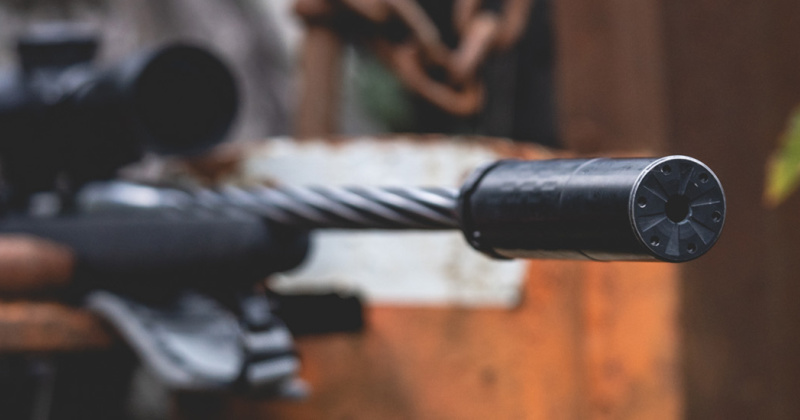
So, when is Titanium the ideal choice?
We end where we began. Titanium’s distinctive properties make it a valuable construction material for the rigorous demands of suppressor performance. If you are looking for an easily maintained suppressor that can take abuse, any of the materials we’ve discussed will work. But if you’re looking for that ideal balance of strength, weight, and rust resistance, Titanium is an excellent choice.


